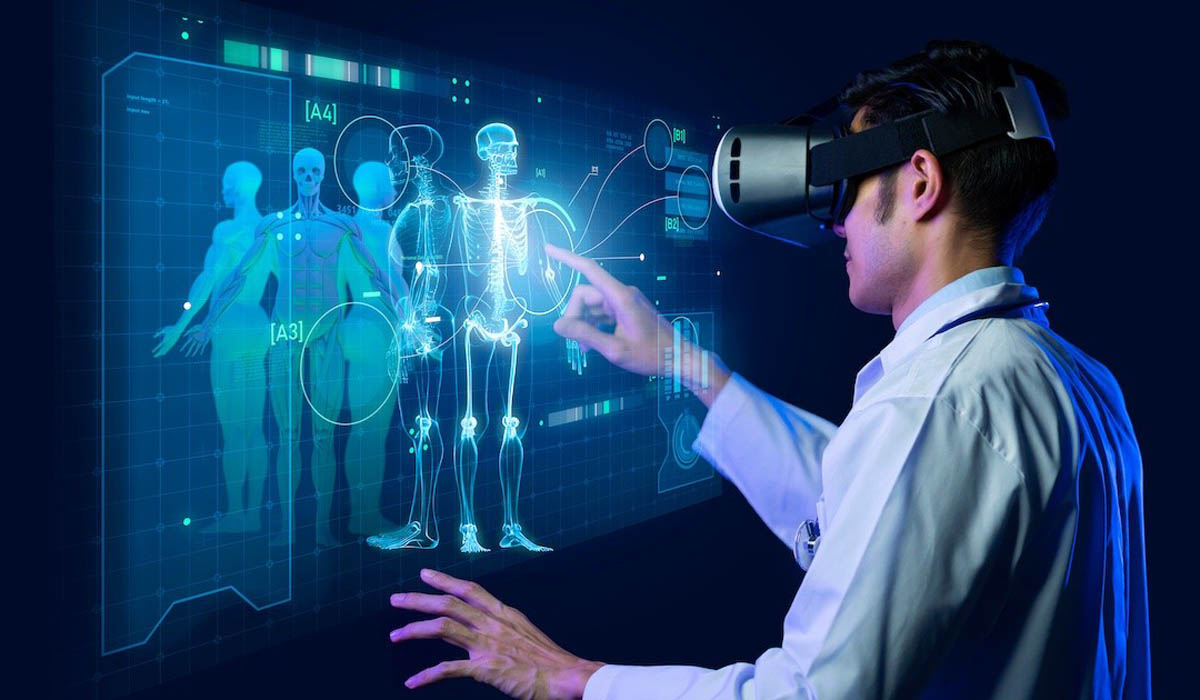
Introduction: In the rapidly advancing landscape of healthcare, Artificial Intelligence (AI) has emerged as a powerful force, reshaping the industry from diagnostics to treatment and beyond. This comprehensive exploration delves into the multifaceted role of AI in healthcare, examining its transformative impact, key applications, challenges, and the promising future it holds for both medical professionals and patients.
Section 1: Diagnostic Precision and Speed
1.1 Imaging Analysis with AI
- Explore how AI-powered image recognition and analysis enhance diagnostic precision in radiology.
- Discuss real-world examples of AI applications in interpreting medical imaging, such as X-rays, MRIs, and CT scans.
1.2 Early Disease Detection
- Discuss the role of AI in early disease detection through predictive analytics and pattern recognition.
- Highlight instances where AI has demonstrated superior accuracy in identifying potential health risks before symptoms manifest.
Section 2: Personalized Treatment Plans
2.1 Genomic Medicine and AI
- Explore how AI analyzes genomic data to tailor treatment plans based on an individual’s genetic makeup.
- Discuss the potential for personalized medicine to improve outcomes and minimize adverse effects.
2.2 Drug Discovery and Development
- Examine the impact of AI on drug discovery, accelerating the identification of potential compounds and streamlining the development process.
- Highlight collaborations between AI systems and pharmaceutical researchers in creating innovative treatments.
Section 3: Operational Efficiency and Resource Optimization
3.1 Predictive Analytics for Hospital Management
- Discuss how AI-powered predictive analytics optimize hospital operations, from bed management to resource allocation.
- Explore examples of AI systems forecasting patient admission rates and improving overall hospital efficiency.
3.2 Robotics and AI in Surgery
- Explore the integration of AI with robotic surgery systems, enhancing precision and minimizing invasiveness.
- Highlight real-world applications where AI-assisted surgery has led to improved outcomes.
Section 4: Challenges and Ethical Considerations
4.1 Data Privacy and Security
- Address concerns related to patient data privacy and security in the context of AI applications.
- Discuss measures taken to safeguard sensitive health information.
4.2 Bias in AI Algorithms
- Explore the challenges associated with bias in AI algorithms, particularly in healthcare settings.
- Discuss efforts to address and mitigate bias to ensure fair and equitable healthcare outcomes.
Section 5: The Future of AI in Healthcare
5.1 AI-Driven Virtual Health Assistants
- Explore the potential for AI-powered virtual health assistants to provide personalized health advice and monitor chronic conditions.
- Discuss how these virtual assistants contribute to patient empowerment and proactive healthcare.
5.2 Collaborative AI Research
- Highlight the collaborative efforts between AI systems and medical researchers in advancing medical knowledge.
- Discuss the potential for AI to contribute to groundbreaking discoveries and innovations in healthcare.
Conclusion: AI in healthcare represents a paradigm shift, offering unprecedented opportunities to enhance diagnostic accuracy, personalize treatment plans, and optimize operational efficiency. While challenges such as data privacy and algorithmic bias must be addressed, the potential benefits for patients and healthcare professionals are immense. As AI continues to evolve, it holds the promise of revolutionizing medicine, ushering in an era where precision, efficiency, and personalized care converge for the betterment of global health. Embrace the transformative power of AI in healthcare, where innovation meets compassion, and witness the ongoing journey towards a healthier, more connected future.





